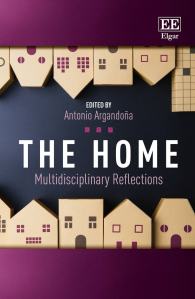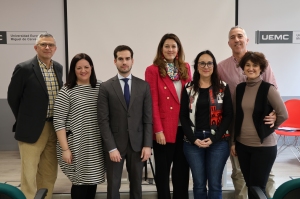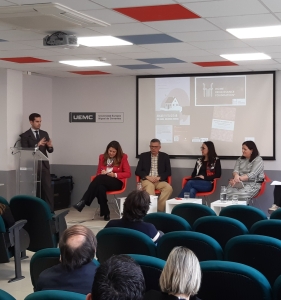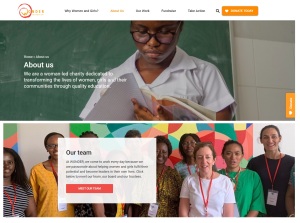In ancient times, achieving a certain age was considered to be the stage where wisdom and old age were attained. Being also the stage of life where people need care. Nowadays while the world preaches stay young and enjoy while you can, as if it were the only true life, there are companies like Senecura that take care of those who are not young anymore but deserve a full life too.
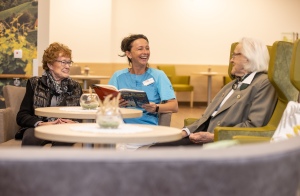 This Austrian enterprise was founded in 1998 and has turned into the leading provider of nursing and healthcare services in the private sector. Dr Markus Schwarz, COO at Senecura explains that their core mission is to provide a home for residents who need specific care or rehabilitation needs. They provide an environment as close as possible to a family home to our residents.
This Austrian enterprise was founded in 1998 and has turned into the leading provider of nursing and healthcare services in the private sector. Dr Markus Schwarz, COO at Senecura explains that their core mission is to provide a home for residents who need specific care or rehabilitation needs. They provide an environment as close as possible to a family home to our residents.
(Q) But what about your employees…
(A) Our employees have a very special mission to fulfill – to bring their personal touch and emotional energy to transform a professional facility into a loving home for elderly people. We try to build small communities that resemble the homes of many people.
(Q) Is their work for them as a second home?
(A) Well, home also has a connotation of withdrawal and separation from professional life. We also must respect and encourage the needs of our employees to distance themselves from so many feelings and emotional relations (including frequent losses of beloved residents), they develop during work. So, in this case, the workplace cannot always be a home for everybody and has to separate itself sometimes actively from the employee’s home.
(Q) Do you carry out any kind of initiatives to make the employee feel at ease in the company? To somehow develop a bond, a feeling of belonging?
(A) Our main goal is to keep the communication and confidence in the different teams. Changes in the team structure and team leadership are always periods of instability and reorientation for all the team members. Therefore, the most important aspect for making employees feel comfortable at their workplace is extensive leadership training for the team leaders, to encourage communication among staff members as well as a spirit of mutual aid.
We strongly believe that these interpersonal factors are the most important ingredients of employee satisfaction and therefore the possibility for employees to perform their best services by being at ease with their professional environment.
(Q) Do you have a way of measuring the satisfaction of your employees? How would you know if their jobs make them happy? Do you think there is any relation with their own homes?
(A) We continuously measure employee satisfaction with a monthly survey that measures not only satisfaction in the job and the work environment but also with the team leadership. Over 60% of our employees show a very good satisfaction and bonding with their workplace.
Happiness, however, is a completely different issue, since happiness is not something you can simply provide, but needs to be earned. In our profession of taking care of people in need, happiness is usually very close around the corner, since the best way towards happiness is to care for other people. The main reason for unhappiness in the job of our caretakers is to not being able to provide enough time and care to our residents.
Usually, being happy is a way of living the present by caring for others. I therefore do not see a strong connection between happiness at home and in the workplace. That being said, of course, the opposite is definitely true, where an unhappy home will also make life at work more difficult.
(Q) Do you think that workers with a happy or stable home are more efficient in their jobs? What are the differences you can perceive?
(A) The main factor for efficiency in the job is in my experience the sense of purpose in one’s life. Wherever people see a purpose, they will try to perform the best they can. In essence, as soon as people see the purpose in what they do, they will start to excel into excellence and transform the tasks they have assigned into fulfilling activities for themselves and others. With this purpose in mind, all activities will be performed with excellence, which in the long run gives the most efficient results.
(Q) How important do you think home is for people working at Senecura?
(A) Reflecting on the various employees in our nursing homes and their diverse backgrounds (we employ over 13.000 people from over 70 different nationalities) having a home and providing a home to others is a very important factor for them. However, especially if you think about the needs of the elderly people in our home, which are many times fragile and vulnerable, a home should not turn into a static protective realm that conserves the past but needs to be a platform for the dynamics of life in all its human forms.
In our nursing homes, we want to make sure that life can continue for our residents and provide a fresh taste of life for all our residents daily.
The same is true for the homes of our employees, which are on the one hand needed as a place to withdraw from the sometimes-exhausting work but are also places where life has to move on to provide new stories and experiences for the small communities we are trying to build.

